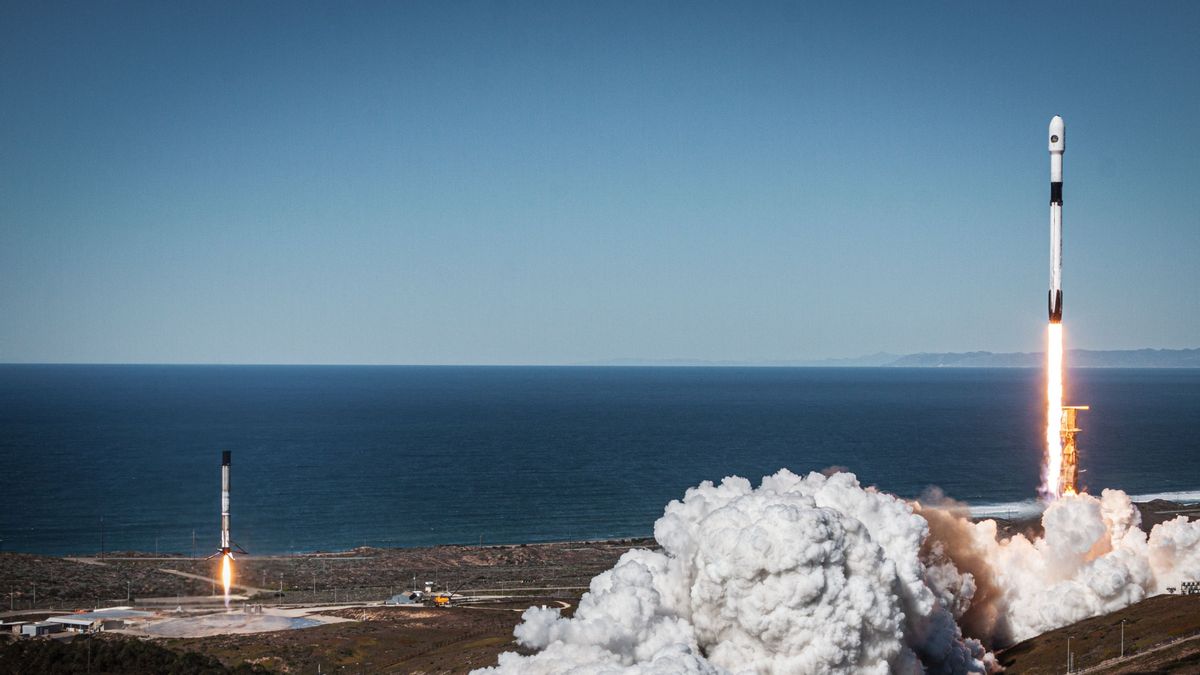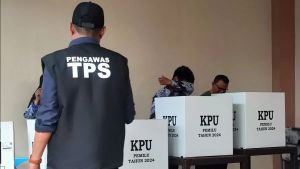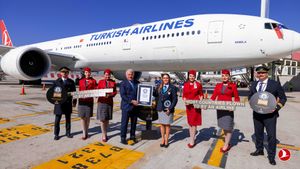JAKARTA - US rocket companies face the daunting task of transporting hundreds of satellites into space in the coming years. This is due to Western sanctions that have sidelined Russia's space launch industry.
SpaceX, Astra Space and Rocket Lab USA are among a handful of US companies expected to fill the void from Russian rockets. But industry officials in the US doubt their capacity to quickly scale up and close the gap left by Russian rocket companies.
As the race between space internet companies emerges, including Elon Musk's SpaceX's Starlink and Amazon.com Inc's Project Kuiper, to build a giant constellation of satellites to transmit broadband internet from space continues to heat up. This makes the demand for the launch of these low orbit satellites is expected to skyrocket.
According to data from launch service aggregator Precious Payload, more than 800 satellites under 100 kilograms are expected to be placed in orbit this year alone. That's almost double the number of launches in 2021.
"In 2024, 2025, when all these mega-constellations need to launch, there will be real problems," Rocket Lab CEO Peter Beck told Reuters. This refers to the communications satellite network being built by SpaceX, AST Spacemobile, and OneWeb.
Rocket Lab is one of a new generation of companies building mini propulsion systems to cash in on the exponential rise in demand for placing compact satellites in low earth orbit.
According to industry analytics firm BryceTech, by 2021, satellites launched by OneWeb and SpaceX account for about three-quarters of small satellite launches.
According to the existing database Russia has still maintained a 16% share of the global launch market over the past five years.
About two-thirds of Soyuz launches are commercial satellite launches or to support the International Space Station (ISS). "While the rest is for Russian domestic customers," said Quilty Analytics analyst Caleb Henry.
If access to Russian capabilities is lost due to Western sanctions against the country over its invasion of Ukraine, then companies in Europe and the United States will have to step in immediately to meet the demand.
However, it may not be that easy, given the complexity and challenges involved in building and launching a new rocket.
"It's always possible that a new vehicle will come online sooner, thanks to improved manufacturing techniques, but precedent suggests it will be difficult to achieve a high launch cadence for the next few years," said analyst Henry.
Beck of Rocket Lab said the launch crisis would also apply to the smaller satellites used to image Earth and make scientific observations that typically share the journey to orbit the rocket with other satellites.
A delayed launch can affect satellite internet companies in a number of ways. There is a risk of losing launch rights if they do not comply with FCC-mandated deadlines, while some companies may not see a return on investment unless their satellite is in orbit.
SEE ALSO:
United Launch Alliance, a joint venture between Boeing Co and Lockheed Martin, will replace the Russian engine with one made by Jeff Bezos-backed Blue Origin. However, Western launch companies still have a long way to go.
According to rocket industry experts, Amazon's blockbuster launch contract for Project Kuiper could prompt rocket makers to accelerate production.
SpaceX's Starship launch vehicle will soon be mass-produced and analysts expect it to meet some demand. The company also launches satellites for and operates Starlink.
"Long term, launch constraints can be overcome with Starship. Starship could crush the price in the commercial market if Elon wants to, but my prediction is he's much more focused on getting humans to Mars," said Deutsche Bank analyst Edison Yu.
Yu added that "new space companies" such as SpaceX, Rocket Lab, and Astra Space are winners when demand increases and there is no dependence from satellite manufacturers around the world on Russian Soyuz rockets.
Earlier this year, OneWeb decided to leave its Russian launch service and signed a deal with rival SpaceX to put its satellites in orbit.
The English, Chinese, Japanese, Arabic, and French versions are automatically generated by the AI. So there may still be inaccuracies in translating, please always see Indonesian as our main language. (system supported by DigitalSiber.id)














